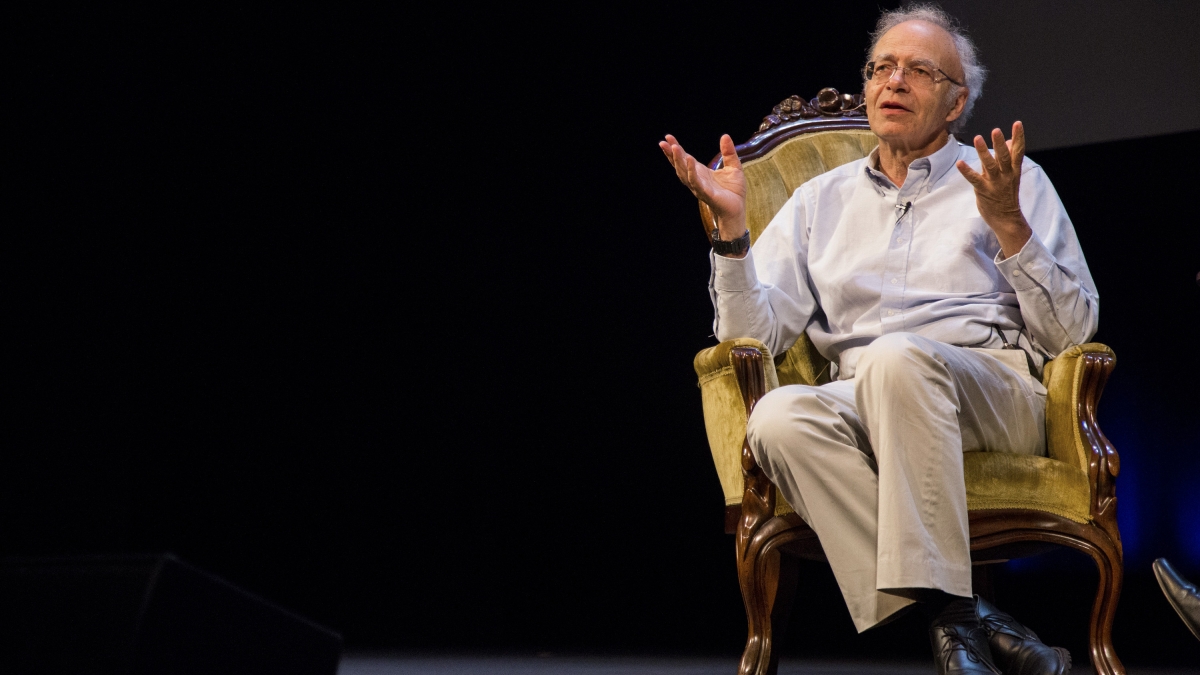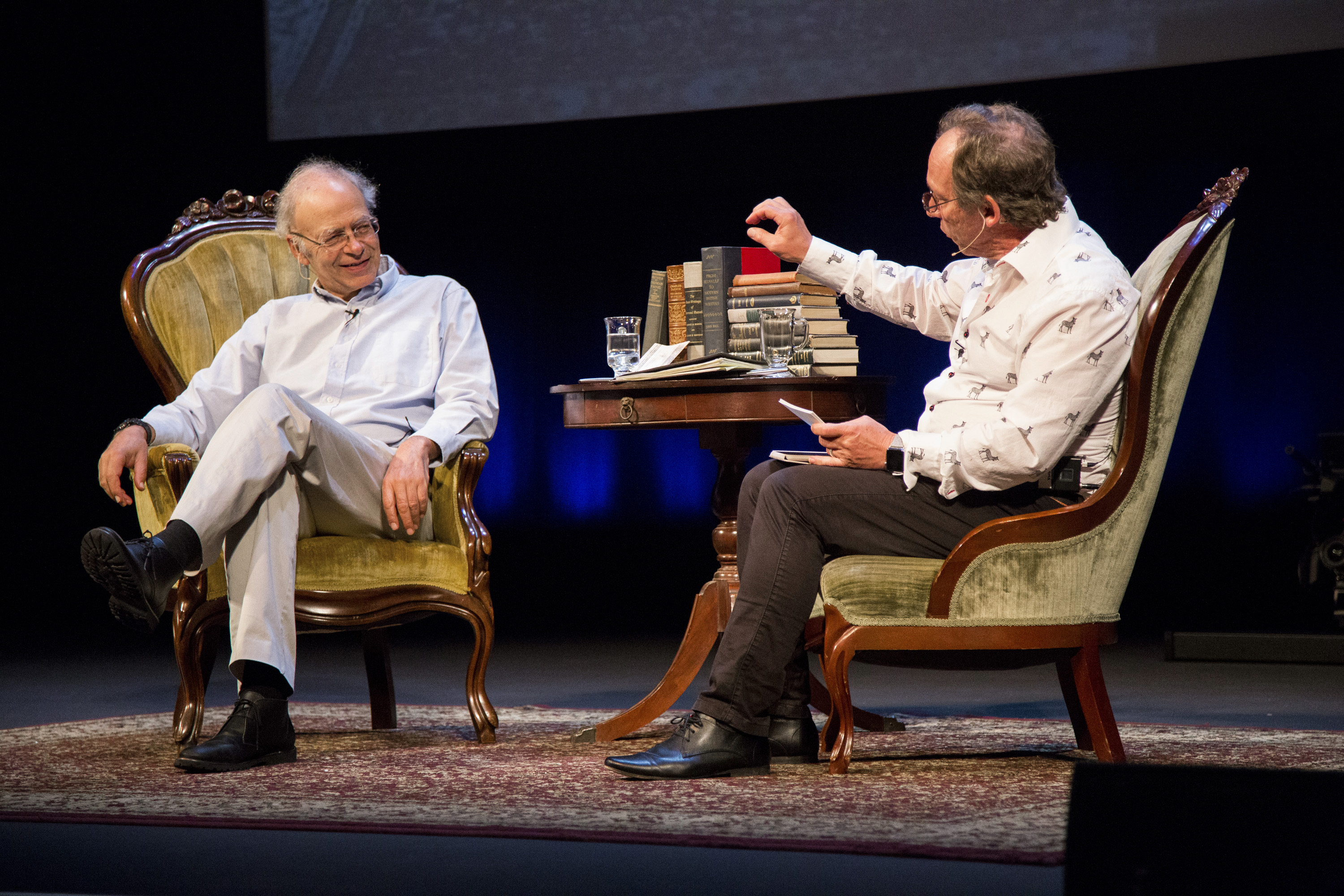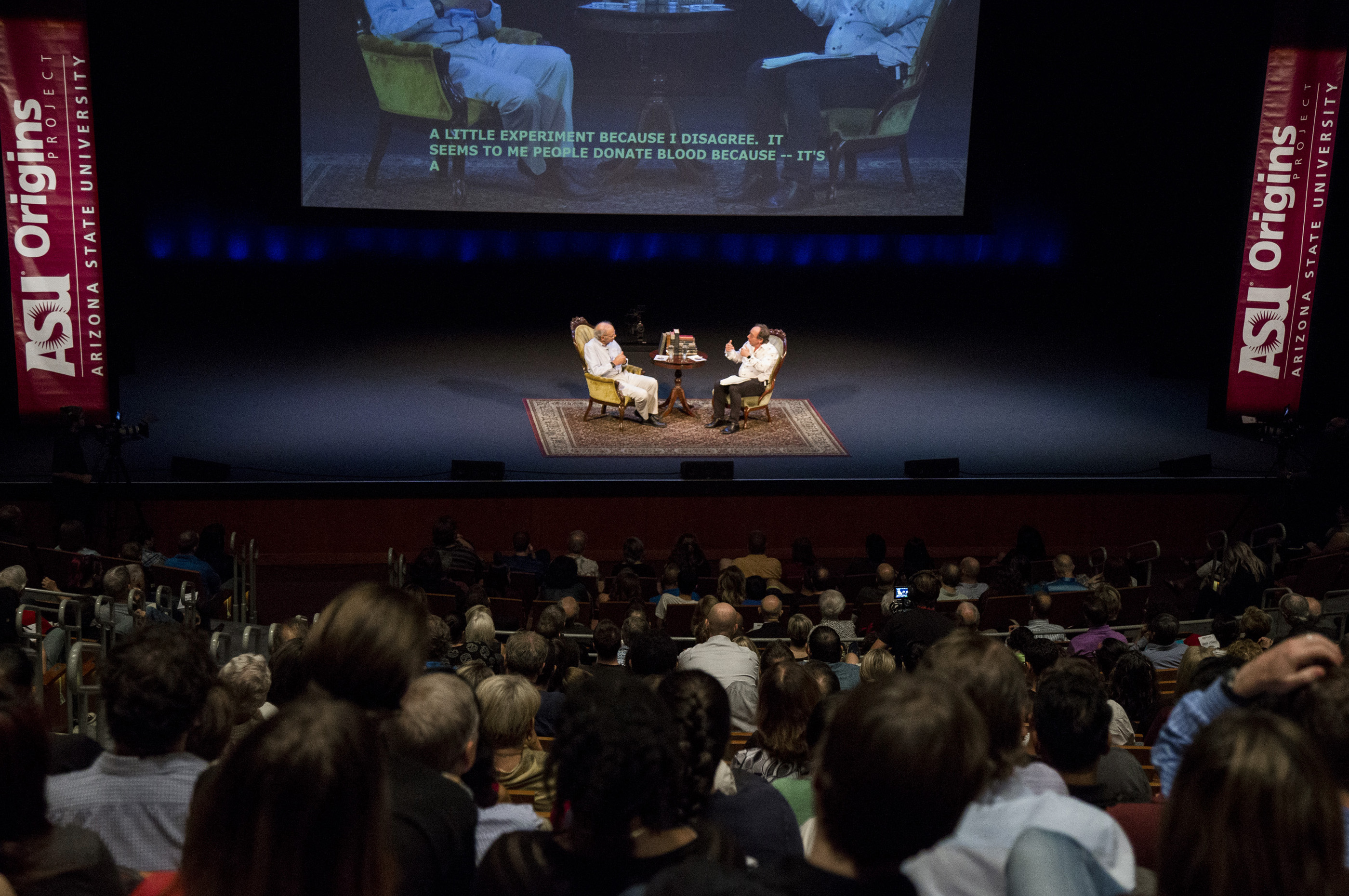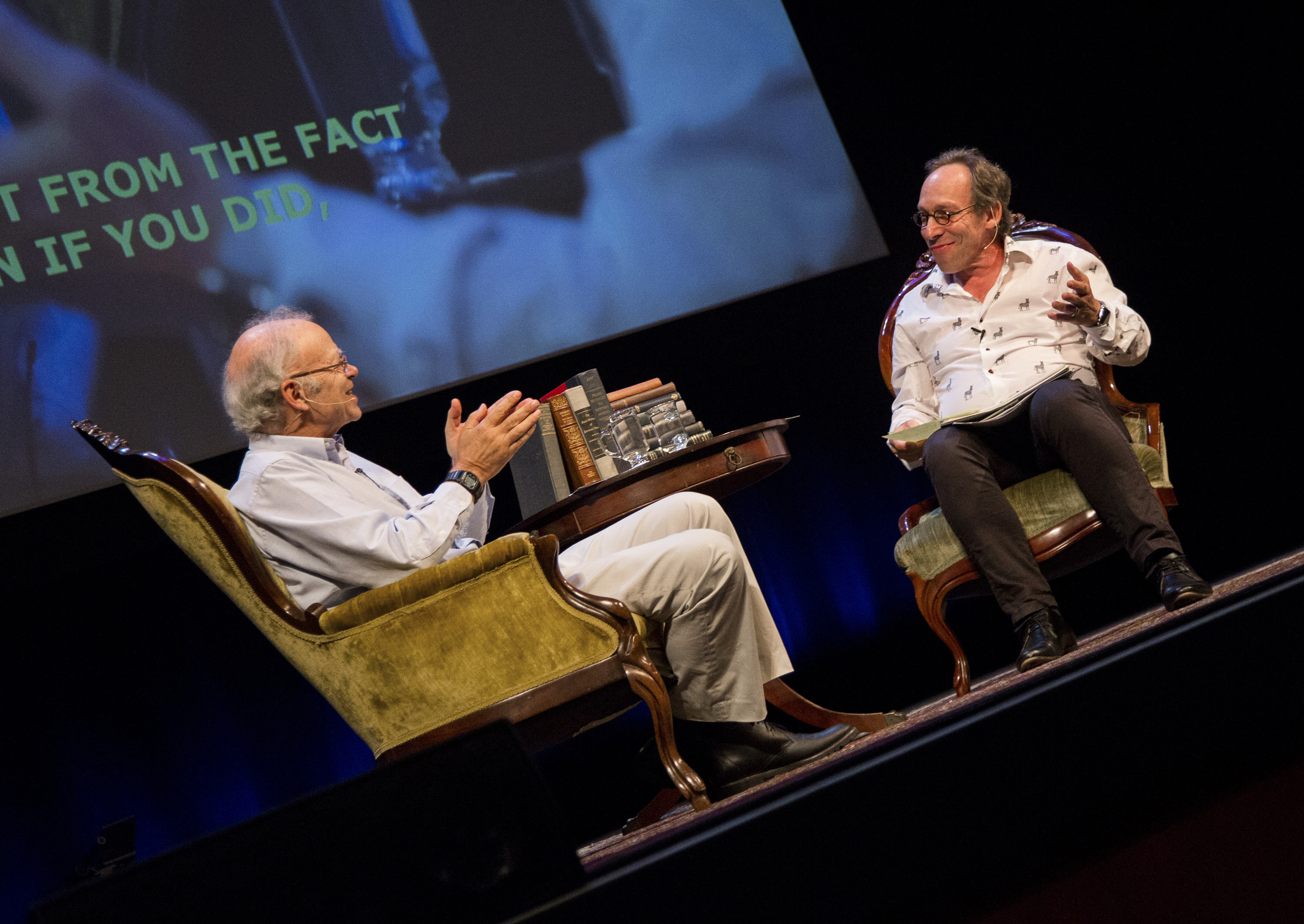How can we be better people in the 21st century?
Embrace reason and science, said renowned animal-rights philosopher Peter Singer and theoretical physicist Lawrence Krauss at a discussion Friday night.
“Singer & Krauss: An Origins Project Dialogue” was sponsored by Arizona State University’s Origins Project, a transdisciplinary initiative exploring fundamental questions such as the origins of the universe, life, consciousness, culture and human existence.
Renowned animal-rights philosopher Peter Singer (left, and in top photo) and theoretical physicist Lawrence Krauss, director of the Origins Project at ASU, debate issues of ethics and science Friday in a conversation sponsored by the Origins Project. All photos by Tessa Menken/ASU
Singer gained renown in the mid-1970s as the author of “Animal Liberation,” the landmark book that argued for the first time that animals have rights. His arguments about the ethics of eating meat, biomedical experimentation on animals, and industrial farming changed lives and spawned a new consciousness about animal rights. A professor of bioethics at Princeton University, Singer’s latest books have focused on moral philosophy and applied ethics.
Krauss is a cosmologist and one of the first physicists to suggest most of the universe’s mass and energy lies in empty space — the concept of “dark energy.” An advocate of public policy based on empirical data, scientific skepticism and the public understanding of science, he appeared before the Ohio state school board in 2004 to speak in opposition to the idea of intelligent design. Krauss is Foundation Professor of the School of Earth and Space Exploration at Arizona State University and director of the Origins Project.
“It’s very easy to think that if you look at newspapers and TV things are getting worse and worse,” Singer said Friday night at the Scottsdale Center for the Performing Arts. “That’s a myth.”
Enlightenment and reason have made the world a better place, Singer said. He said the capacity to reason allows us to see and imagine other beings in the world and empathize with them.
“We can understand more what it’s like to be a different being in this world because of science,” he said.
The duo discussed altruism, such as donating blood or giving to a disaster-relief fund for a distant country.
“How is it possible to be altruistic to strangers, to people you don’t know?” Singer asked. “I think it comes from our capacity to reason.”
Singer and Krauss speak Friday in front of a large crowd at the Scottsdale Center for the Performing Arts.
“How do you know what is good?” Krauss asked.
Reasoning is the right way to moral standards, Singer said.
“We have to have experiences and then make judgments,” he said. “What is good is judging what is to be the best outcome.”
Can we make choices in life, or is everything mapped out before we take our first steps?
“I want to spend two minutes on free will, because that’s all it’s worth,” Krauss said. “As a physicist, I don’t think there’s free will. … At some level, the universe is deterministic.”
Determinism is the idea that all events, including human action, are ultimately determined by causes external to the will. Some philosophers have taken determinism to imply that individual human beings have no free will and cannot be held morally responsible for their actions.
The lack of free will does not somehow free us from responsibility, Krauss said. “We feel like we make choices, act like we make choices and we have to take responsibility for those choices,” he said.
As a physicist, Krauss (right) does not think there is such a thing as free will.
One choice Singer strongly advocated people make is to change consumer spending on meat products, because it’s one of the best ways to stop animal abuses.
He described horrific conditions in factory chicken farming.
“Anybody with any concern for animal suffering ought not to support it,” Singer said
He pointed out that the extremes suggested by radical animal-rights activists aren’t practical, and that animal rights is a nuanced topic. Animals simply can’t be given completely equal rights.
“It would be just as absurd to give non-human animals the right to vote as it would be to give 2-year-olds the right to vote,” he said.
More Science and technology

Cracking the code of online computer science clubs
Experts believe that involvement in college clubs and organizations increases student retention and helps learners build valuable social relationships. There are tons of such clubs on ASU's campuses…
Consortium for Science, Policy & Outcomes celebrates 25 years
For Arizona State University's Consortium for Science, Policy & Outcomes (CSPO), recognizing the past is just as important as designing the future. The consortium marked 25 years in Washington, D…

Hacking satellites to fix our oceans and shoot for the stars
By Preesha KumarFrom memory foam mattresses to the camera and GPS navigation on our phones, technology that was developed for space applications enhances our everyday lives on Earth. In fact, Chris…



